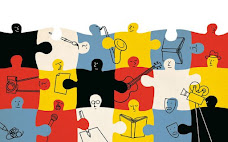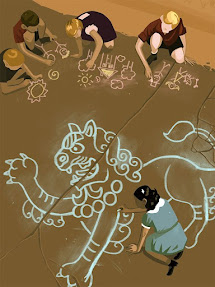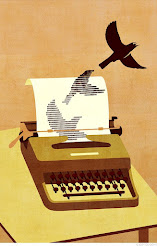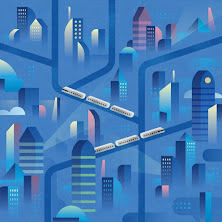Thursday, April 11, 2024
Social Justice Posters @PS4 3rd - 5th grade
Sunday, March 31, 2024
Game Design 2/4 @APR World Building
Day 2: Intersections + Map Making
Look at different kinds of Board Game play styles, pathways
Some basic gameplay structures:
1. 4 pathways heading to the same destination - different worlds heading to the same outcome
2. Interwoven pathways/maze with 4 distinct world components
3. Shutes and ladders style, ascending through various terrain - portals or doorways are important
4. ?
Get into groups + draft initial components
Core rule requirements to be considered:
1. How do players move/pass between worlds/escape obstacles
2. How does this game incorporate cards with personal experiences from everyone on the team into gameplay?
3. What needs to happen for the game to be concluded? What is the goal of the game and how is it achieved?
Present a rough sketch/map of your groups intended game by the end of class - like the first drawing below:
Game Design 1/4 @APR Brainstorm
Day 1: Life Journey/Personal Reflection/Brainstorm
Main goal for today is to have notes that respond to each of these 3 main questions/concepts for a board game that might be an exploration of your life. Don't worry about whether things are good or important enough - just write everything down, so you have more resources to play with later.
1. Environment Design
+ What environments describe our life? Are there multiple?
+ Do you want to build a game based on your life out of real/literal things? Or are there symbolic landscapes that feel more evocative?
+ What are some possible landscapes we could us to describe our experiences? (An airplane taking us to different countries, a treasure map, a moon landing, a river?)
2. Obstacles - things in our lives that slow us down or force us to deviate in our path
+ What is an obstacle? What are some ways they might manifest in someone's life?
+ What obstacles have we faced, or expect we might have to come up against at some point?
+ What could we use to represent those obstacles? (Anxiety Monsters, Walls, Sisyphus etc)
3. Pathways through Life
+ What does your path look like? Smooth? Rocky? Like a maze, a garden, a golden brick road, a stairway to heaven? What are some different kinds of pathways?
+ What support structures exist in your life? (Family, friends, religion, sports, time/coming of age/future plans?)
+ What could we use to represent them? (bridges, helping hands, ladders, time warps?)
+ What are your goals? (To get through High School, to become an adult, to pass regents, to know yourself?)
Sunday, March 10, 2024
Call to Action @PS4
Today, it is much harder to detach the concept of heroism from morality; we only call heroes those whom we admire and wish to emulate. But still the concept retains that original link to possibility. We need heroes first and foremost because our heroes help define the limits of our aspirations. We largely define our ideals by the heroes we choose, and our ideals -- things like courage, honor, and justice -- largely define us. Our heroes are symbols for us of all the qualities we would like to possess and all the ambitions we would like to satisfy. A person who chooses Martin Luther King or Susan B. Anthony as a hero is going to have a very different sense of what human excellence involves than someone who chooses, say, Paris Hilton, or the rapper 50 Cent. And because the ideals to which we aspire do so much to determine the ways in which we behave, we all have a vested interest in each person having heroes, and in the choice of heroes each of us makes.'




















































